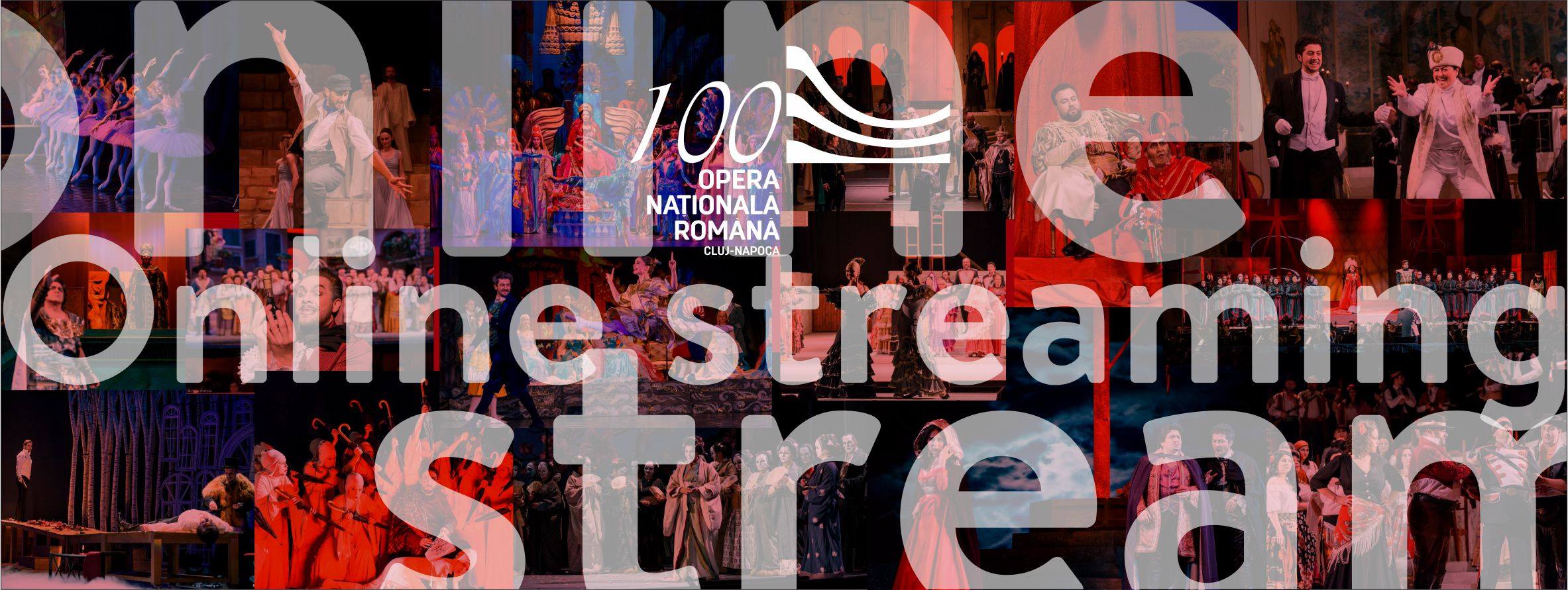
ONLINE PERFORMANCE
distribution
Art Director: Nadine Duffaut
Scenography: Louis Désiré
Vocal coach: Viorica Cortez
Music coach: Adelina Bihari, Lucian Dușa, Lelia Serafinceanu
Artistici direction assistance: Tiberius Simu (invitat)
Stage and backstage direction: Cristina Albu
Light Designer: Mădălina Mânzat (invitată)
Prompter: Monica Denițiu
Werther: Călin Brătescu
Albert: Cristian Hodrea
Le Bailli: Petru Burcă
Schimdt, Bailli's friend: Florin Pop
Johann: Beniamin Pop
Charlotte, Bailli's daughter: Iulia Merca
Sophie, Charlotte's sister: Diana Țugui
Brühlmann, a young man: Alexandru Potopea
Kätchen: Tatiana Oltean
Hans: Matei Bojan-Fritz, Vlad Corb-Max, Karina Mitrana
Karl: Anda Popovici
Gretel: Alessia Ilea
Clara: Andrada Rusu
The Orchestra of National Romanian Opera Cluj NapocaOrchestra Operei Naționale Române din Cluj-Napoca
"Junior Vip" children's choir of the Romanian National Opera in Cluj-Napoca and of the "Sigismund Toduţă" Music College Cluj-Napoca - Musical training: Anca Mona Mariaş
description
show category: Online performance

Recording made in partnership with TVR Cluj. Performance presented on 04.10.2015
Opera in four acts on a libretto by Édouard Blau, Paul Milliet and Georges Hartmann, inspired by the novel The Sufferings of the Young Werther by Johann Wolfgang von Goethe.
The creative qualities of the French romantic composer Jules Massenet (1842-1912), who outlined and proposed to the Parisian public a new type of opera – melodrama – proved to be ideal in the musical-dramatic rendering of Werther’s story. Written in just two months in early 1774 amid the hustle and bustle of the new literary movement “Sturm und Drang,” Goethe’s novel Die Leiden des jungen Werthers (The Sufferings of Young Werther) had a resounding impact on readers of the time, generating a real “Wertherian fever” of love suicides. Napoleon Bonaparte himself considered it a masterpiece of European literature, carrying it with him throughout the Egyptian campaign and reading it no less than seven times, as he acknowledged in a later discussion with Goethe.
Werther’s passionate love for Charlotte is hopeless. The oath she made to her mother on her deathbed, that she would marry another man – Albert, who was able to provide her with security and a suitable home for her younger brothers – prevented her from accepting him, with all because she loves him too. Seeing no hope of a future with Charlotte, Werther commits suicide. But he dies happily in the arms of his girlfriend, who finally admits that she loves him with the same zeal. The dramatic course of the opera, which takes place in Wetzlar for half a year (July-December 178 …), highlights very well the characteristics and condition of the two main characters. The depth and intensity of Werther’s feelings places him in direct contrast to the intellectual simplicity and social conventions that guide the existence of Charlotte’s family and friends, while his girlfriend, an innocent girl at first, matures considerably emotionally. realizing the authenticity of his feelings in the last seconds of Werther’s life. Everything is contained and rendered in the musical pages by an impressive expressive force, without leaving the simplicity, the refinement, the tenderness that characterizes the whole art of Massenet.
Although composed between 1885 and 1887, Werther’s opera was premiered only on February 16, 1892, at the Hoftheater in Vienna, where it enjoyed great success. He remained, along with Manon (1884) and Thaïs (1894), among the most important dramatic works of the composer, staged even today and received with great enthusiasm by the public eager to relive, with each new performance, the charm of the songs and of the timbre diversity that characterizes them. The current production of the Romanian Opera in Cluj dates from the autumn of 2015 and is signed by the French director Nadine Duffaut, who fully honored the challenges of the stage and music, against the background of the scenographic concept proposed by Louis Désiré!
